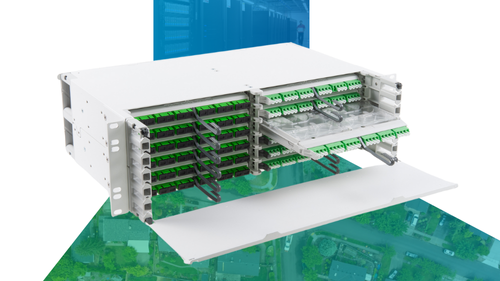 If you think energy reduction, conservation or “green” energy is a fad, think again. Reducing everyone’s carbon footprint is at the forefront of every industry conversation, even in the cable industry.
If you think energy reduction, conservation or “green” energy is a fad, think again. Reducing everyone’s carbon footprint is at the forefront of every industry conversation, even in the cable industry.
Back in June, the Society of Cable Telecommunications Engineers (SCTE) announced a multi-year campaign to provide cable operators with new standards, technology innovation and training aimed at reducing power consumption 20 percent on a unit basis. In addition to reducing power consumption, the Energy 2020 campaign aims to:
- Reduce energy cost by 25 percent on a unit basis
- Reduce grid dependency by 10 percent
- Optimize the footprints of technical facilities and datacenters by 20 percent
- Establish vendor partnerships that will impact hardware development
CommScope understands how important it is for cable operators to deploy the right solutions to reduce their energy consumption from both a CapEx and OpEx standpoint. We are a supporter of the SCTE’s Smart Energy Management Initiative (SEMI) program and additional educational programs.
 I recently asked Derek DiGiacomo, senior director, Information Systems and Energy Management Program, SCTE, a few questions about the SEMI program and the new Energy 2020 campaign.
I recently asked Derek DiGiacomo, senior director, Information Systems and Energy Management Program, SCTE, a few questions about the SEMI program and the new Energy 2020 campaign.
DD: Looking back on the SEMI program, the top achievements would have to include bringing awareness of the importance of smart energy management and recognizing supply limitations; proof in concept modeling surrounding new green modes of power such as solar and fuel cell technologies and serving as a solid foundation for the industry to launch an official energy management program that will impact the entire cable landscape through organized, aligned initiatives. With the focused attention on energy, SCTE’s Standards program formed the Sustainability Management Subcommittee (SMS) and published the Recommended Practice (RP) for Critical Facilities as well as a standard on Product Environmental Specifications for equipment in cable critical facilities. Both publications, when leveraged by cable operators, will support the reduction of energy consumed in facilities and can drive product reliability. SMS has also been responsible for the release of a recycling recommended practice and the pending carbon footprint data collection RP, 380 v DC, shelf level product metrics and the Adaptive Power Systems Interface Specification (APSIS ©) documents, respectively.
MA: SCTE has announced “Energy 2020” as a program launching at SCTE-Expo this September. What is this program and how does it differ from SEMI?
DD: Energy 2020 will leverage the valuable research of SEMI by strategically aligning the operator community to identify and work methodically on projects that are most meaningful and impactful to the operators (MSO) to achieve the goals we announced in June. The operators see the business and environmental value of working together to make energy a priority in their equipment, systems and operations in light of forecasted supply and demand challenges, rising energy costs and environmental support. The key will be to take advantage of the MSO alignment on these initiatives and partner with the vendor community to create technological innovations that will be used across the industry. The industry needs to make sure that energy and power never become obstacles. The benefits are network reliability improvements. We’re going to work on density and continue to grow the bandwidth without necessarily growing out of our facilities.
MA: How can vendors and operators get involved in Energy 2020?
DD: Anyone wanting to get involved in Energy 2020 work should become a SCTE Standards member. Energy 2020 initiatives will leverage the SCTE Standards vehicle to provide the operators the means of achieving the Energy 2020 goals and beyond. Another way to learn more is to attend the Energy 2020 session at this year’s SCTE Cable-Tec Expo® in Denver on Wednesday, September 24. The program is intended to create alignment on standards and best practices, to drive design and implementation of equipment, and to create SCTE training resources that will enable workforce teams to optimize technology for maximum efficiency. Comcast’s John Schanz will keynote the session and continue to partner with the SCTE as industry leaders come together to construct the next phase of the Energy 2020 plan. This initiative will be driven by an already identified MSO champion who has experience and passion for that particular topic. The champion will look to assemble his or her team after the Expo’s kickoff session and all interested parties are encouraged to help lead us in this revolutionary program.






